Aspirin Therapy for Heart Disease Prevention: Who Really Needs It?
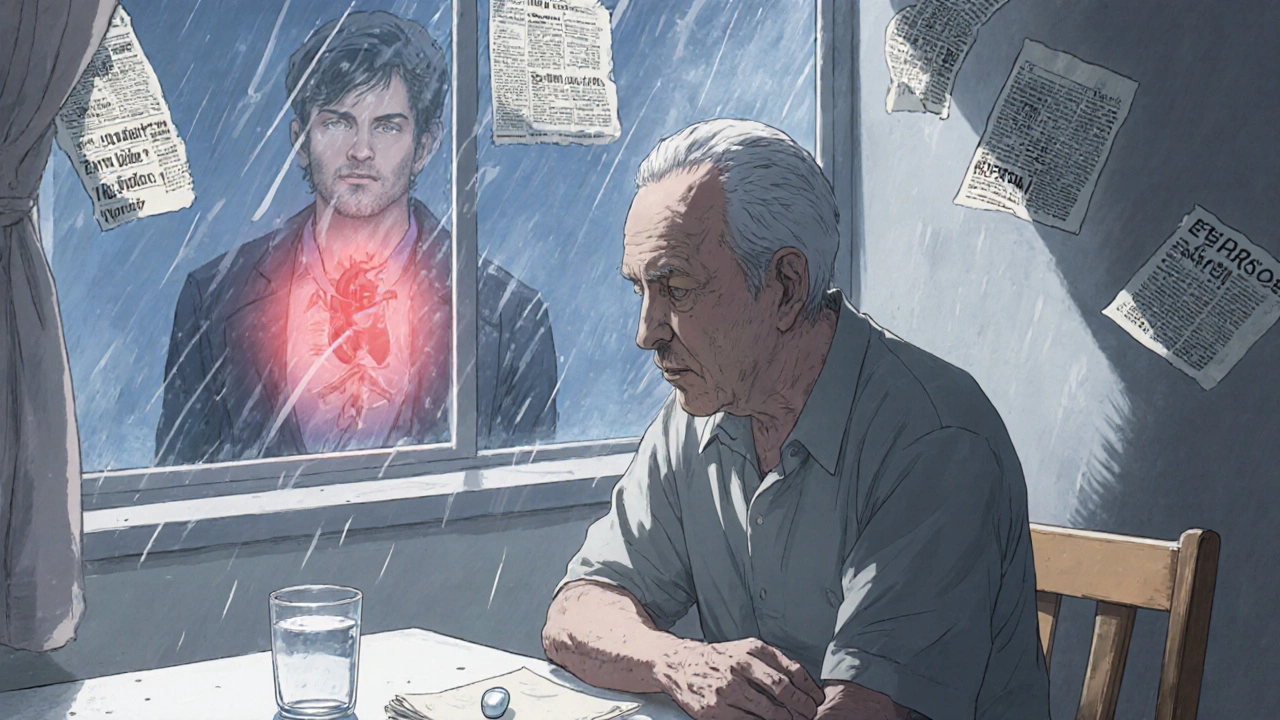
For decades, taking a daily low-dose aspirin was as common as brushing your teeth if you wanted to avoid a heart attack. Many people started it after a parent had a heart attack, or their doctor casually suggested it during a routine checkup. But today, that advice has changed - dramatically. If you’re over 60 and have never had a heart attack or stroke, aspirin therapy is no longer recommended for preventing heart disease. And if you’re under 60, it’s not automatic either. The science has caught up with the practice, and what once seemed like a simple, harmless habit is now seen as a potential risk with very limited benefits for most people.
Why Aspirin Was Once Seen as a Miracle Pill
Aspirin has been around since 1899. It was originally developed as a painkiller, but in the 1970s, scientists discovered it blocked a key enzyme involved in blood clotting. That led to the idea: if you can stop blood clots, you can stop heart attacks and strokes. And for people who already had heart disease, that turned out to be true. In secondary prevention - meaning after someone has already had a heart attack, stroke, or stent - aspirin reduces the risk of another event by about 21%. That’s why it’s still a cornerstone of treatment for those patients. But for people without any history of heart disease? The story is very different. Large studies from the last decade - including ASPREE, ASCEND, and ARRIVE - showed something surprising: while aspirin slightly lowered the risk of nonfatal heart attacks and strokes, it also increased the chance of serious, even life-threatening bleeding by about 43%. For every 100 people taking aspirin daily for 10 years, roughly one might avoid a heart attack, but two might have a major bleed - like a stomach ulcer that requires a blood transfusion, or bleeding in the brain.Who Might Still Benefit from Aspirin?
The current guidelines don’t say aspirin is useless for everyone. They say it’s only worth considering for a small group: adults aged 40 to 59 with a high risk of heart disease and low risk of bleeding. To figure out if you’re in that group, doctors use a tool called the ACC/AHA Pooled Cohort Equation. It takes five pieces of information:- Your age
- Your sex
- Your race
- Your total and HDL cholesterol levels
- Your blood pressure (whether you’re on medication or not)
- Whether you have diabetes or smoke
- High blood pressure
- Kidney or liver disease
- History of bleeding (like nosebleeds, stomach ulcers, or easy bruising)
- Use of other blood thinners (like warfarin or apixaban)
- Age over 65
- Drinking more than three alcoholic drinks a day
What About Diabetes or Family History?
Many people think: “My dad had a heart attack at 55, so I should take aspirin.” But family history alone isn’t enough. What matters more is your own current risk factors. Someone with diabetes and high cholesterol has a much higher risk than someone with just a family history and normal blood pressure. The American Diabetes Association still recommends aspirin for people with diabetes who are over 40 and have other risk factors - like smoking or high blood pressure. But even that’s changing. Recent studies show that with modern diabetes treatments and better control of cholesterol and blood pressure, the added benefit of aspirin is tiny. And here’s something many don’t realize: having high cholesterol doesn’t automatically mean you need aspirin. Statins - medications like atorvastatin - reduce heart attack risk by 25-37%, which is far more than aspirin’s 10-15%. For most people, controlling cholesterol and blood pressure is the real game-changer.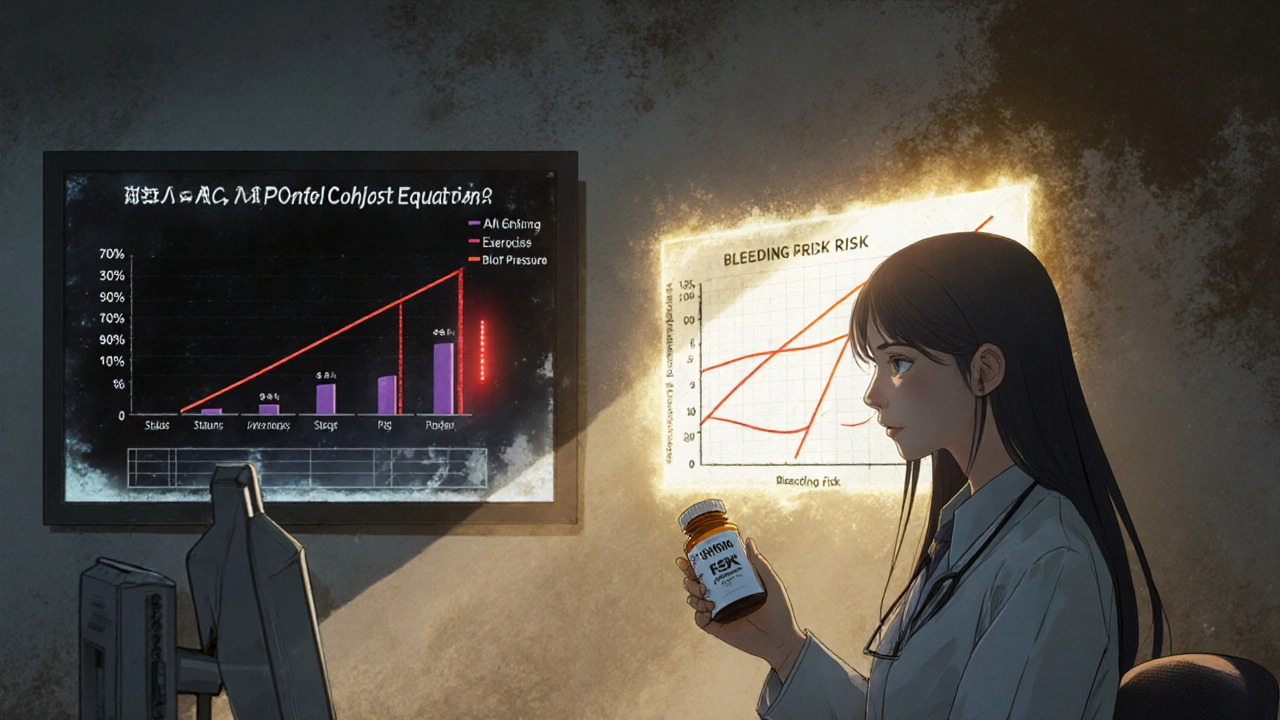
Why Are So Many People Still Taking It?
Despite the guidelines, an estimated 29 million Americans without heart disease still take daily aspirin. About 6.6 million of them aren’t even told to by a doctor. Why? One reason is habit. People started taking it years ago and never stopped. Another is fear. The idea of “doing something” to prevent a heart attack feels better than doing nothing - even if the science says the balance has shifted. Social media and anecdotal stories make it worse. You see posts like: “I’ve taken baby aspirin since I was 50. I had a mild heart attack at 68 - and it didn’t kill me.” But that’s confirmation bias. People who had a heart attack and took aspirin remember it. People who bled from it and never told anyone? They don’t post about it. A 2019 study in Circulation found that 58% of adults aged 60-75 who were taking aspirin for prevention didn’t even know the guidelines had changed. Many were told by a doctor years ago - and never re-evaluated.What Should You Do If You’re Already Taking Aspirin?
If you’re taking aspirin daily and you’re over 60 - and you’ve never had a heart attack, stroke, stent, or bypass - you should talk to your doctor about stopping. Don’t quit cold turkey. But don’t assume you need to keep going. If you’re under 60 and have no heart disease, ask your doctor to calculate your 10-year heart disease risk. If it’s below 10%, aspirin is unlikely to help you. If it’s above 10%, then weigh the bleeding risk. Do you have a history of stomach ulcers? Are you on NSAIDs like ibuprofen regularly? Do you drink alcohol? Are you over 60? If yes to any of those, the risks probably outweigh the benefits. If you’re on aspirin because of diabetes, ask whether your risk factors are well-controlled. If your A1C is under 7%, your blood pressure is normal, and your LDL cholesterol is below 70, you might not need aspirin anymore.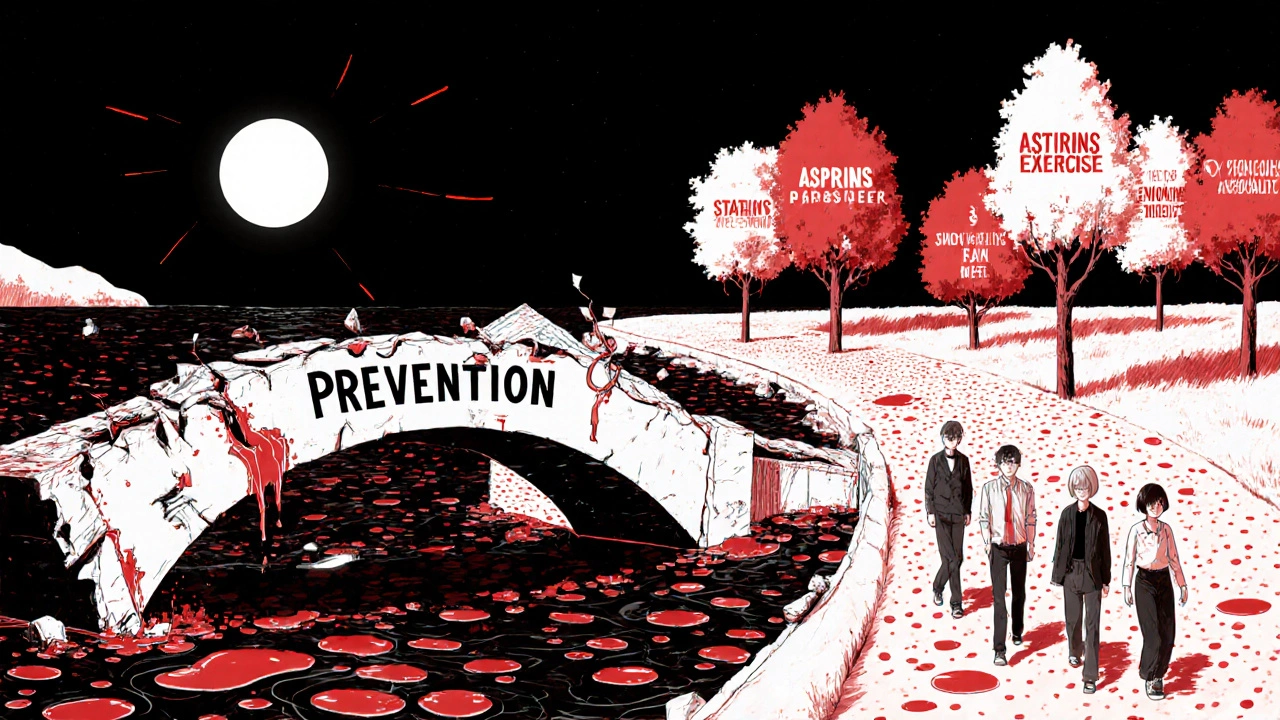
What Are the Real Alternatives?
Aspirin isn’t the only tool - and it’s not even the most effective one for most people.- Statins: These drugs lower LDL cholesterol and stabilize plaque in arteries. They’re proven to prevent first heart attacks in high-risk people - and they don’t increase bleeding risk.
- Blood pressure control: Keeping your systolic pressure under 130 reduces heart attack risk more than aspirin ever could.
- Quitting smoking: This single change cuts heart disease risk by half within five years.
- Exercise and diet: Walking 30 minutes a day, eating more vegetables and less processed food, and losing 5-10% of body weight can reduce your 10-year heart disease risk by 20-30%.
What About Cost and Accessibility?
Yes, aspirin is cheap. A three-month supply costs $4-$6 in the U.S. That’s a big reason why it stayed popular so long. But cheap doesn’t mean safe. A bleeding event can cost tens of thousands of dollars in hospital bills - not to mention the pain, recovery time, and risk of death. In New Zealand, aspirin is available over the counter, but it’s not free. And while the price is low, the real cost is your health. The goal isn’t to save money on pills - it’s to avoid hospitalization.Final Thoughts: It’s Not About Aspirin - It’s About Your Risk
Aspirin therapy for heart disease prevention isn’t a one-size-fits-all solution anymore. It’s a narrow, personalized tool - and only for a small group of people who meet very specific criteria. If you’re under 40: you don’t need it. If you’re 40-59: calculate your risk. If it’s below 10%, skip it. If it’s above 10%, talk to your doctor about bleeding risk. If you’re 60 or older: unless you’ve already had a heart attack or stroke, don’t start it. If you’re already taking it, talk to your doctor about stopping. The best way to prevent heart disease isn’t a pill. It’s knowing your numbers - cholesterol, blood pressure, blood sugar - and taking action on them. That’s where real protection lies.Should I take aspirin every day to prevent a heart attack?
Only if you’re between 40 and 59, have a 10% or higher risk of heart disease in the next 10 years, and have no major bleeding risk factors. For most people - especially those over 60 - the risks of bleeding outweigh the benefits. Never start aspirin without talking to your doctor.
I’ve been taking aspirin for years. Should I stop?
If you’re over 60 and have never had a heart attack, stroke, stent, or bypass, you should talk to your doctor about stopping. Stopping aspirin suddenly isn’t dangerous for most people, but don’t quit without medical advice. Your doctor can help you weigh your current heart and bleeding risks.
Is aspirin safe if I have high blood pressure?
High blood pressure increases your risk of bleeding - especially in the brain. If your blood pressure isn’t well-controlled (above 140/90), aspirin is not recommended. Even if it’s controlled, you still need to consider your overall bleeding risk before starting or continuing aspirin.
Does aspirin help people with diabetes?
For people with diabetes over 40 who also have other risk factors - like smoking, high blood pressure, or high cholesterol - aspirin may still be considered. But if your diabetes is well-managed and you have no other major risks, the benefit is very small. Many doctors now recommend statins instead.
What’s the best dose of aspirin for heart protection?
If aspirin is recommended, the standard dose is 75-100 mg per day - often called “baby aspirin.” Higher doses don’t offer more protection but increase bleeding risk. Never take more than 100 mg daily for prevention unless specifically directed by your doctor.
Can I take aspirin if I’m already on a blood thinner?
No. Taking aspirin with other blood thinners like warfarin, apixaban, rivaroxaban, or dabigatran greatly increases your risk of serious bleeding. If you’re on a blood thinner for atrial fibrillation, a replaced valve, or deep vein thrombosis, aspirin should not be added without clear medical guidance.
Are there any natural alternatives to aspirin for heart health?
There’s no natural supplement that works like aspirin to prevent clots. Garlic, ginger, and omega-3s have mild antiplatelet effects, but they’re not strong enough to replace aspirin - and they don’t have the same proven results. The best natural approach is lifestyle: exercise, healthy eating, quitting smoking, and managing stress. These reduce heart disease risk more than any supplement or pill.


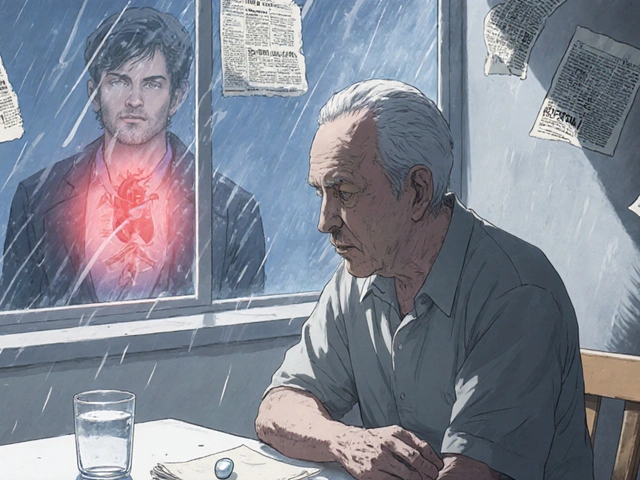
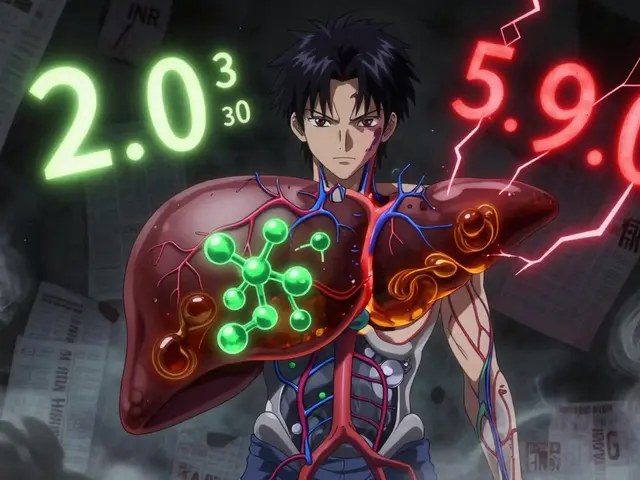
Kelsey Worth
so i’ve been taking baby aspirin since 2015 bc my mom had a heart attack at 58… and now u tell me i’m basically a walking bleeding hazard? 😅 guess i’ll start yelling at my doctor next visit like ‘hey remember when u said this was a good idea??’
shelly roche
Love this breakdown. So many people cling to ‘but my uncle took it and lived to 90!’ like that’s science. Real talk: if your risk score is under 10% and you’ve got zero history of heart issues, aspirin is just a placebo with side effects. Statins, walking, sleep, and less sugar? That’s the real MVP squad. Also-yes, your blood pressure meds matter more than that tiny pill.
Nirmal Jaysval
usa people always overthink everything. in india we just take aspirin if chest hurts or if dad had heart attack. no scores no apps no fancy equations. if u got money for doctor then u got money for statins. why make it so complicated? simple life = simple fix.
Emily Rose
THIS. Thank you for writing this. I’ve been telling my mom for years to stop her daily aspirin-she’s 67, never had a heart attack, but her doctor in 2008 said ‘just in case.’ She’s now on blood pressure meds, has mild kidney issues, and drinks wine every night. HAS-BLED score? Definitely 3+. She cried when I showed her the guidelines. But she’s glad she’s stopping. We need more of this clarity, not fear-mongering or ‘just in case’ medicine.
Benedict Dy
The data is unequivocal. The ASPREE trial demonstrated a net harm in adults over 70, with a number needed to harm (NNH) of 50 for major hemorrhage over 5 years, versus a number needed to treat (NNT) of 125 for cardiovascular event reduction. This is not a gray area-it’s a clinical imperative. The persistence of aspirin use in low-risk populations reflects systemic failure in guideline dissemination and patient education. It is not negligence; it is inertia. And inertia kills.
Zack Harmon
ASPIRIN IS A LIE. I’m 52, took it for 12 years, and last year I had a GI bleed so bad I needed a transfusion. My doctor never told me the risk. Now I’m scared to even take ibuprofen. This isn’t medicine-it’s a cult. People are dying from ‘preventive’ pills while doctors sit there like they’re giving out candy. I’m not mad-I’m terrified. And I’m not alone.
Jeremy S.
Stop taking it if you’re over 60 and never had a heart thing. Seriously. Just talk to your doc. No drama. No guilt. Just facts.
Ron Prince
usa is soft. we got doctors telling people to stop aspirin? in my country we’d say ‘if u scared of bleeding then don’t eat food, dont breathe air.’ aspirin is cheap, proven, and if u got risk factors u take it. stop overanalyzing. america turned prevention into a therapy session.
Kristy Sanchez
you know what’s really tragic? that we need a 5000-word essay to convince people that a $4 pill might kill them. we live in a world where people will research the best kombucha brand but won’t Google their own bleeding risk. we’re not just bad at medicine-we’re bad at caring. we’d rather believe in magic pills than face the hard truth: real health is messy, expensive, and requires you to actually change your life. and that? that’s terrifying. so we take aspirin. and pretend we’re doing something. meanwhile, our arteries are screaming and our kidneys are crying and no one’s listening.